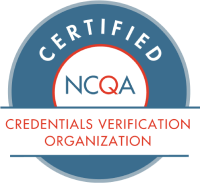It’s no secret that access to healthcare services is a pivotal issue for many. Provider network adequacy, which ensures that health plans have enough providers to meet their members’ needs, serves as a cornerstone for healthcare access. However, the current network adequacy standards fall short in addressing how long patients may have to wait to get an appointment with their healthcare provider. This issue has given rise to a worrying trend that leaves patients frustrated and underserved.
Tick, Tock
Patients with chronic conditions rely on frequent and timely access to their providers, and any undue delays can negatively impact quality of life. Whether it is an urgent or a routine check-up, patients should never have to wait excessively for their appointments.
Extended waiting times can have significant impacts on mental health. Patients experiencing anxiety or other severe symptoms may be more prone to worsening conditions while waiting. The stress of managing health conditions, combined with prolonged wait times, can cause patients’ hope to dwindle.
Another frustrating aspect of the waiting game is the complex appointment scheduling process. Patients may spend hours on the phone or online trying to schedule appointments, only to be informed that the next available appointment is weeks or even months away. This situation is even worse for individuals residing in rural areas with limited access to healthcare services, where waiting times could be longer due to provider shortages or transportation limitations.
Health plans with robust networks can address the waiting game issue by partnering with an ample number of providers who commit to prompt appointment scheduling and convenient access to care. Furthermore, it is essential that the scope of services available to patients is offered in a manner that drives member adherence to the most appropriate care setting. To do so, providers and networks must consider community based providers, institutional care, home-based care, telemedicine services, and other care options.

Be More Than Adequate
To effectively mitigate the waiting game issue, insurance companies must prioritize monitoring access and availability, including gathering feedback on wait times, appointment scheduling experiences, and other relevant factors. By doing so, we can ensure that network adequacy standards provide patients with timely and convenient access to healthcare services. Only by taking this approach can we achieve optimal health plans that support improved health outcomes for all individuals. Let us not wait idly for the waiting game to endanger the health and well-being of our communities.
Let’s be more than adequate together!




